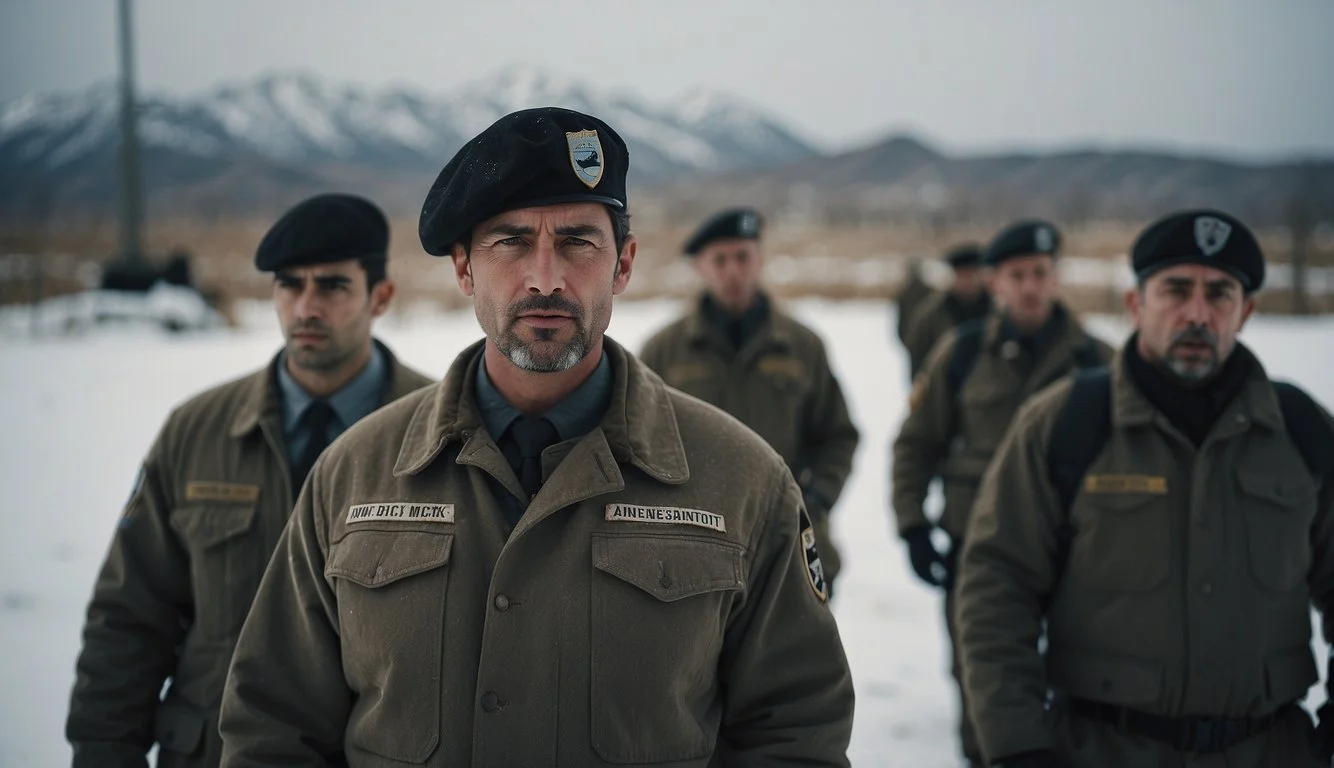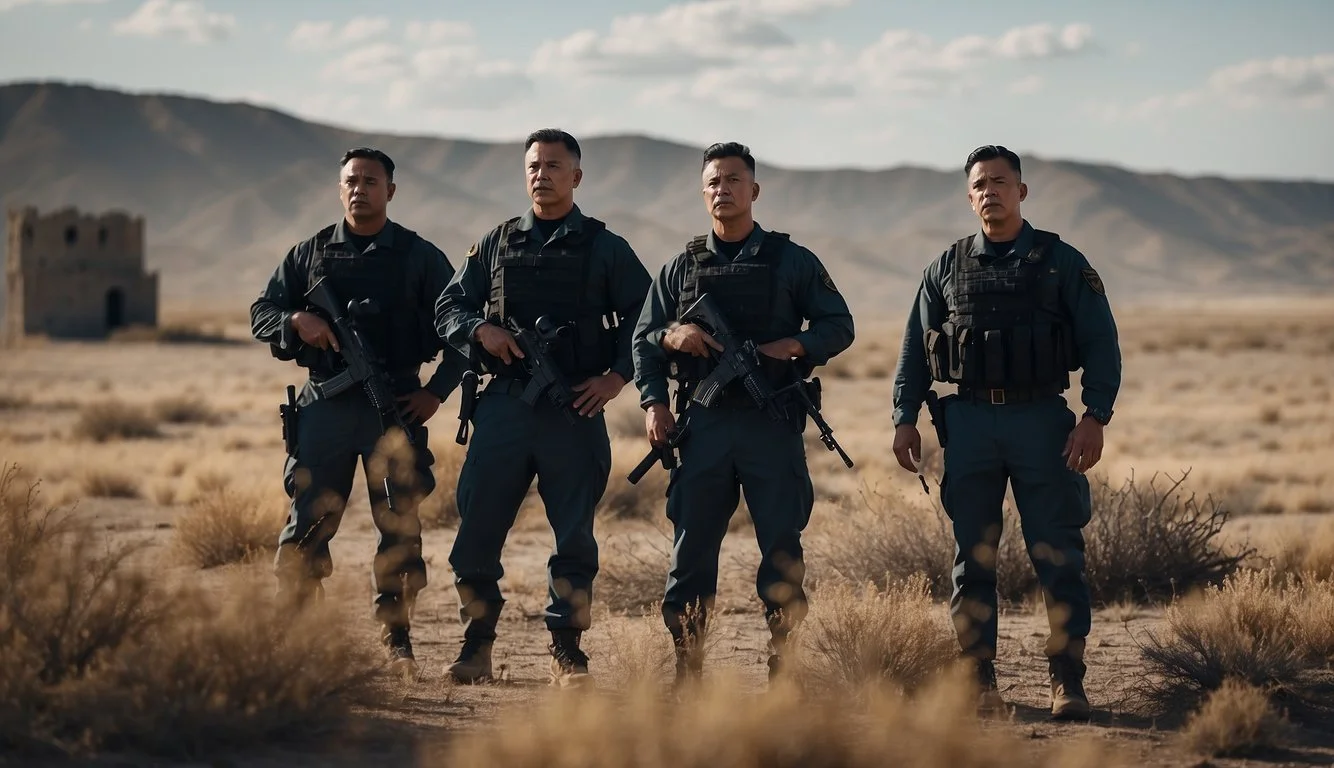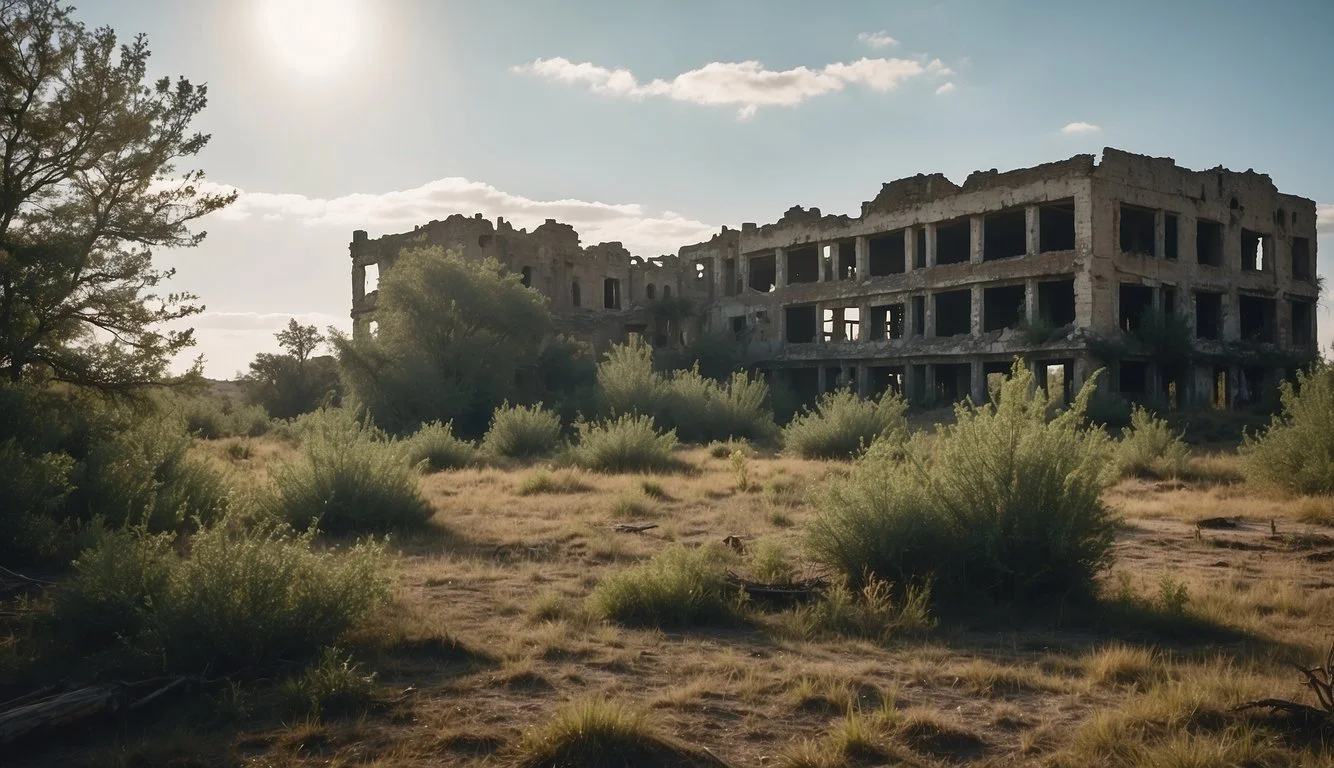Documentary Review: Ordinary Men: The Forgotten Holocaust (2023)
A Deep Dive into WWII Atrocities
The 2023 documentary "Ordinary Men: The Forgotten Holocaust" provides a chilling examination of human nature, focusing on how ordinary individuals were capable of performing unspeakable acts during the Holocaust. This film explores the brutal actions of Reserve Battalion 101 from Hamburg, comprised of everyday men who volunteered for the police forces, revealing the disturbing reality of their involvement in mass atrocities.
This meticulously researched documentary delves into the psychological and social mechanisms that enabled these individuals to become perpetrators of such violence. By presenting detailed accounts of the Nuremberg Einsatzgruppen trial, the film underscores the sheer magnitude of the crimes committed and the pivotal role played by these "ordinary men."
Through interviews and historical footage, the documentary allows viewers to grasp the complexities and horrifying nature of the Holocaust beyond the infamous concentration camps. "Ordinary Men: The Forgotten Holocaust" profoundly impacts the viewer, prompting a deeper reflection on the capabilities of human nature under extreme circumstances.
Synopsis of 'Ordinary Men: The Forgotten Holocaust'
"Ordinary Men: The Forgotten Holocaust" presents a disturbing examination of how average German men became perpetrators of mass atrocities during World War II. The documentary dissects the psychological, social, and historical factors that contributed to their participation in the Holocaust.
Plot Overview
The documentary centers around Reserve Battalion 101, a group of policemen from Hamburg. These men were not hardened soldiers but regular civilians who volunteered to join the police forces.
Through interviews, archival footage, and reenactments, the film portrays how these ordinary men carried out face-to-face executions and other brutal acts. Their transformation from regular citizens to war criminals is meticulously chronicled, illustrating the impact of indoctrination and command hierarchy on their actions.
Main Themes
The main themes include the banality of evil, obedience to authority, and the moral disengagement that allowed these men to commit heinous acts.
The film explores how ordinary individuals can become agents of genocide when placed in specific social and psychological environments. It highlights the thin line between normalcy and atrocity, demonstrating that human nature, when manipulated under certain conditions, can lead to unimaginable cruelty.
Setting and Historical Context
Set against the backdrop of World War II, the documentary delves into the specific historical setting of the Holocaust's lesser-known atrocities. Reserve Battalion 101 operated primarily in areas now within Poland.
This historical context is crucial to understanding the men's actions, as it situates their atrocities within the broader spectrum of Nazi war crimes. The narrative not only focuses on their actions but also on the societal and political circumstances that conditioned these individuals to carry out mass murder.
Film Production
The production of Ordinary Men: The Forgotten Holocaust (2023) is a meticulous effort that brings to life the harrowing story of Reserve Police Battalion 101. The film’s strong direction, adept cinematography, thoughtful editing, and immersive sound design collectively create a powerful documentary experience.
Directorial Vision
Manfred Oldenburg and Oliver Halmburger co-directed Ordinary Men: The Forgotten Holocaust (2023) with a vision to portray the disturbing reality faced by Reserve Police Battalion 101. Their approach balances educational content with narrative drive, ensuring the documentary is both informative and engaging. They paid particular attention to historical accuracy, consulting historians and survivors to lend authenticity to the harrowing accounts depicted.
Cinematography
The cinematography in the documentary utilizes a mix of archival footage and reenactments to create a vivid portrayal of events. The use of black and white contrasts with occasional color segments to highlight moments of stark reality. Wide shots and close-ups are carefully chosen to evoke emotional responses. Cinematographer Peter Braun captured the grim landscapes and the haunted faces of the individuals involved, ensuring the mood aligns with the film’s somber themes.
Editing and Post-Production
The editing, led by Hans Fischer, skillfully intertwines historical documents with modern interviews and dramatizations. This layered approach creates a cohesive narrative that spans decades while maintaining clarity and impact. Post-production work involved meticulous attention to detail, particularly in synchronizing audio from archival footage with contemporary visuals. The pacing ensures the film is thought-provoking without being overwhelming.
Music and Sound Design
The music composed by Erika Konrad uses minimalistic and haunting scores to underscore the gravity of the subject matter. Sound design by Ludwig Weiss integrates sparse yet powerful soundscapes that enhance the emotional tone of the documentary. Ambient sounds and curated silence play a significant role during reenactment sequences, creating an immersive auditory experience that draws the viewer deeper into the narrative.
Cast and Character Analysis
The documentary "Ordinary Men: The Forgotten Holocaust" features a compelling mix of lead and supporting performances that illuminate the tragic events and the human psychology behind them.
Lead Performances
Brian Cox brings depth and nuance to his portrayal. He is known for his gravitas and exceptional delivery, which enhances the gravity of the historical events depicted. His narration adds a profound layer to the documentary, making the experiences of the individuals involved more relatable and impactful.
Benjamin Ferencz, a notable figure in legal history, provides an authentic and powerful presence. His firsthand insights into the Nuremberg Trials offer a unique perspective, elevating the documentary's credibility and emotional resonance.
Supporting Cast
The supporting cast includes a mix of historians and experts such as Christopher Browning and Harald Welzer. These scholars provide critical context and analysis, supporting the narrative with their extensive knowledge of the Holocaust and wartime psychology.
Oliver Halmburger and Manfred Oldenburg contribute to the documentary’s structure and pacing through their directing, ensuring that the complex historical events are presented in an accessible manner. Their adept management of archival footage and interviews keeps the audience engaged from start to finish.
Background Characters: Numerous unnamed actors and subjects appear in reenactments and interviews, adding layers of perspectives and personal stories. Their contributions, though less prominent, are vital in illustrating the widespread impact and collective memory of these historical atrocities.
Historical Accuracy
The documentary "Ordinary Men: The Forgotten Holocaust (2023)" strives to present an accurate depiction of the harrowing events and individuals involved in Reserve Battalion 101. It draws on well-documented sources and expert testimonies to ensure fidelity to historical facts.
Factual Basis of Events
"Ordinary Men: The Forgotten Holocaust" is based on meticulously researched historical data. It examines Reserve Battalion 101, a group of German police officers who played a significant role in the atrocities committed during the Holocaust. The documentary uses primary sources, including original documents, photographs, and film footage, to support its narrative.
Historians and experts provide detailed commentary, reinforcing the factual accuracy. These sources clarify the involvement of regular police officers in mass executions and other brutal acts. The documentary avoids speculative content, grounding its portrayal in verifiable evidence.
Portrayal of Real Figures
"Ordinary Men: The Forgotten Holocaust" features portrayals of actual individuals involved in Reserve Battalion 101. The documentary includes interviews and statements from experts who have studied these figures extensively.
Brian Cox and Benjamin Ferencz lend their voices to the narrative, offering insights into the psychological and sociological aspects of the men's actions. This helps viewers understand how ordinary individuals could commit such heinous acts under specific circumstances.
Archival materials, including court transcripts and personal letters, provide a nuanced depiction of these individuals, ensuring that the portrayal is both accurate and respectful to historical records.
Critical Reception
"Ordinary Men: The Forgotten Holocaust" (2023) has sparked discussions among both critics and audiences. Its portrayal of historical events and human behavior has been a focal point in many reviews.
Professional Critiques
Experts have highlighted the documentary's in-depth exploration of Reserve Battalion 101 from Hamburg. Critics appreciate the meticulous research and the stark representation of human nature under dire circumstances.
Benjamin Ferencz, chief prosecutor at the Nuremberg trials, features prominently, adding a layer of authenticity and historical importance. While some reviewers noted the disturbing content, they praised the unflinching honesty and educational value of the film.
Audience Response
The film has influenced discussions on various platforms. Viewers have expressed a mixture of shock and admiration for its unambiguous depiction of atrocities committed by ordinary individuals.
Comments and feedback on social media reflect a heightened awareness and reevaluation of historical narratives. Although some found the graphic nature unsettling, many appreciated the documentary’s effort to shed light on lesser-known aspects of the Holocaust.
Personal Reflection
The documentary "Ordinary Men: The Forgotten Holocaust (2023)" resonates deeply on an emotional level while also offering significant educational insights into historical atrocities.
Emotional Impact
Watching "Ordinary Men: The Forgotten Holocaust (2023)" can be emotionally overwhelming. It explores the disturbing reality that ordinary individuals participated in horrifying acts during the Holocaust.
The stark portrayal of these individuals not as monsters, but as regular people, evokes a complex mix of emotions, from shock to sorrow. This perspective challenges viewers to confront the uncomfortable truth about human nature.
The storytelling is straightforward, avoiding dramatic embellishments. This raw depiction makes the emotional weight of the documentary even heavier. Each testimony and historical recounting leaves a lasting impression, prompting viewers to reflect deeply on the implications.
Educational Value
The documentary excels in its educational value by meticulously detailing the roles of ordinary men in the Holocaust. It relies on well-researched historical data and firsthand accounts to provide a comprehensive understanding.
It highlights the psychological mechanisms and societal pressures that led these individuals to commit heinous acts. This exploration offers a valuable lesson on the capacity for cruelty within human nature and the importance of moral vigilance.
Viewers gain insights into the complexities of historical events and are encouraged to consider the broader implications. This makes the documentary not only a recounting of past events but a vital educational tool for future generations.
Comparative Analysis
This section will explore how Ordinary Men: The Forgotten Holocaust (2023) measures up against similar documentaries and its unique contributions to Holocaust narrative.
Similar Works in the Genre
Ordinary Men: The Forgotten Holocaust can be compared to several impactful Holocaust documentaries. Films like Shoah (1985) by Claude Lanzmann and Night and Fog (1956) by Alain Resnais also delve into the atrocities committed during this period.
While Shoah provides an extensive nine-hour examination of the Holocaust through survivor testimonies, Ordinary Men focuses specifically on Reserve Battalion 101 from Hamburg.
This narrower focus highlights the transformation of ordinary individuals into perpetrators. Like The Accountant of Auschwitz (2018), which examines a single individual's crimes, Ordinary Men provides a micro-level view that complements broader narratives.
Documentary's Contribution to Holocaust Narratives
Ordinary Men: The Forgotten Holocaust adds a unique dimension to Holocaust documentation by emphasizing the psychological and social transformations of ordinary individuals under Nazi rule.
Its meticulous research and narrative reveal how situational pressures can convert regular people into war criminals.
This perspective aligns with the work of historians like Christopher Browning, who explored these themes in his book Ordinary Men.
The film also includes insights from key historical figures such as Benjamin Ferencz, enriching its academic weight. Consequently, it serves as a vital resource for understanding the complexities of human behavior in extreme circumstances.
Conclusion and Significance
The film explores the chilling reality of how ordinary men became executioners during the Holocaust and its ongoing relevance to understanding human behavior and historical memory.
Summary of Key Points
Ordinary Men: The Forgotten Holocaust (2023) dissects Reserve Battalion 101's role in the Holocaust, focusing on their transformation from civilians to perpetrators. The documentary utilizes firsthand accounts, expert interviews, and historical footage to illustrate this shift.
The film sheds light on psychological and social factors that allowed such atrocities. The participants were not fanatical Nazis but regular individuals thrust into a horrific scenario. This revelation challenges viewers to consider the potential for ordinary people to commit extraordinary evil under certain conditions.
Film's Legacy and Influence
Ordinary Men: The Forgotten Holocaust has received significant attention for its meticulous research and unflinching portrayal of human cruelty. By exposing the "forgotten" aspects of the Holocaust, it ensures these crimes are not erased from memory.
The documentary's impact extends beyond historical education. It prompts discussions on conformity, obedience, and moral responsibility. The film serves as a potent reminder of the dangers of dehumanization and the importance of vigilance against authoritarian impulses.
Educational institutions have adopted the film as a resource, integrating it into curricula to teach about the Holocaust and human behavior. It has also sparked renewed interest in the psychological studies of perpetrators of mass violence.




